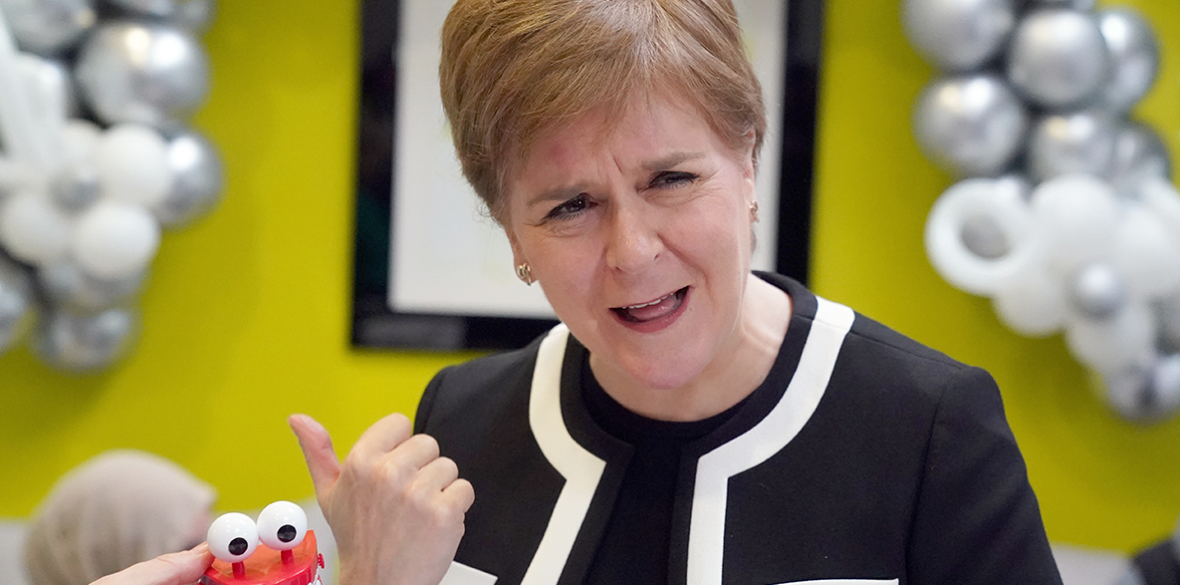
The decision of Nicola Sturgeon to stand down as First Minister of Scotland was sudden, but not unexpected. There has been speculation on her future for months despite her claim just two weeks ago that she had plenty in her tank to keep going.
Recently support for both her as First Minister and for independence has shown signs of sagging.
The SNP in government, since 2007, has an irrefutable history of failure in all of the major devolved responsibilities: health, education, local government, environment and transport.
These failures are systemic, like the failure to address the attainment gap in education and reduce waiting lists in hospitals; they are not isolated episodes that can be remedied easily.
You can add to this the failure of several “one-off” high-profile projects like the unbuilt ferries, the un-dualled A9 and the unfulfilled promise of a Scottish publicly owned energy company.
Sturgeon has avoided taking responsibility for these problems, but more recently she has been unable to dodge criticisms.
However well-intentioned her attempts to get the Gender Recognition Reform (Scotland) Bill (GRR) through the Scottish Parliament, the clumsy handling of the Isla Bryson case, including unwarranted attacks on her critics, and it would appear, inappropriate interference in the prison system, have badly dented her reputation for competence.
She is also awaiting the police investigation into SNP finances, including the involvement of her husband, the CEO of the SNP, Peter Murrell.
The SNP, known for its iron discipline, is experiencing significant dissent.
Nine SNP MSPs broke the whip on the GRR Bill. Meanwhile, there was a thinly disguised coup against her leader in Westminster, Ian Blackford MP.
He jumped before he was pushed, and then Stephen Flynn MP saw off Sturgeon’s favoured candidate for leader.
Flynn immediately hinted that other options should be heard in the decision about making the next general election a de facto referendum.
These woes were intensified by an Ashcroft Poll at the beginning of this week, according to which only one in five (21 per cent) were in favour of a general election being used as a de facto independence referendum.
Further, less than 50 per cent declared support for independence: 44 per cent said they would vote Yes and 56 per cent said they would vote No, excluding the don’t knows or won’t vote. This follows a YouGov poll showing similar voting intentions.
Like many leaders, Sturgeon does not have a clear successor. Keith Brown MSP is the current deputy leader of the party, John Swinney is Deputy First Minister, Stephen Flynn is leader in Westminster, and Kate Forbes, the cabinet secretary for finance in Holyrood who is on maternity leave, may be a contender.
The bookmakers immediately made Angus Robertson, who previously led the SNP in Westminster before losing his seat, the favourite.
Does this mean that Scottish Labour can safely adopt the tactics of Labour at the all-Britain level — do and say nothing radical that might upset the media or middle classes and wait for the opposition to implode?
Scottish Labour might even feel confident enough to try to resurrect the 1990s — it has brought back Douglas Alexander and silenced left critics of neoliberalism like Matt Kerr by denying constituencies the right to choose him as their candidate for the general election.
But Scottish Labour would adopt these tactics at its peril. The other message from the polls is that the electorate is volatile. It is the detail of the YouGov poll that should most give Scottish Labour pause for thought.
Scottish voting intentions for the Scottish Parliament show that the SNP has lost support. In the Scottish Parliament constituency ballot, the SNP was six points down at 44 per cent, and in the Scottish Parliament regional lists, they were also six points down at 36 per cent.
Labour managed to increase its percentage from 25 to 26 per cent in the constituency ballot and 24 to 26 per cent in the regional lists, hardly groundbreaking.
It was the Tories, according to this poll, who seemed to have benefited most from the SNP decline — up from 13 per cent to 17 per cent in both the constituency section and the regional lists.
This is a clear warning to Scottish Labour that they have to do much more to win back the working-class voters who look to the SNP to defend them from Tory policies.
We can’t tell at this point whether this loss of support is a short-term response to recent events. Whatever the case, Labour has to win over those voters who have voted SNP. To have any chance, it must set out a clear position on the constitution that creates a pathway for radical change in our country.
Pauline Bryan is the convener of Red Paper Collective and a Labour peer.
This article first appeared in the Morning Star on 17th February: https://morningstaronline.co.uk/article/f/even-now-scottish-labour-cannot-simply-wait-for-its-rivals-to-fail
 RSS Feed
RSS Feed